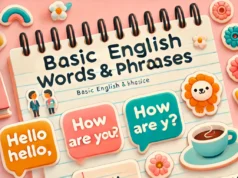THE PLACE OF TIME
ADVERBIALS IN A PASSIVE SENTENCE
a)
Cümlenin sonunda kullanılan zaman zarfları, “by phrase”den
sonra gelir.
Cümlenin sonunda kullanılan zaman zarfları, “by phrase”den
sonra gelir.
Active : Jack
washed the car yesterday.
Passive : The car was washed by Jack yesterday.
washed the car yesterday.
Passive : The car was washed by Jack yesterday.
Active :
Jack will wash the car tomorrow.
Passive :
The car will be washed by Jack tomorrow.
Jack will wash the car tomorrow.
Passive :
The car will be washed by Jack tomorrow.
Cümlenin sonunda
kullanılan bu zarflar,vurguyu arttırmak için cümle başında da kullanılabilir.
kullanılan bu zarflar,vurguyu arttırmak için cümle başında da kullanılabilir.
Yesterday, the car was washed by Jack. Tomorrow, the car will be washed by Jack.
b)
“Always, usually, just, already” gibi cümle içinde kullanılan zaman
zarfları,eğer
cümlede başka yardımcı fiil yoksa, “be” fiilinden
sonra gelir.
“Always, usually, just, already” gibi cümle içinde kullanılan zaman
zarfları,
cümlede başka yardımcı fiil yoksa, “be” fiilinden
sonra gelir.
Active
: Jack usually washes the car in the afternoon.
Passive : The car is usually washed by Jack in the
afternoon.
: Jack usually washes the car in the afternoon.
Passive : The car is usually washed by Jack in the
afternoon.
Active :
Jack last washed the car two days ago.
Passive :
The car was last washed by Jack two
days ago.
Jack last washed the car two days ago.
Passive :
The car was last washed by Jack two
days ago.
Eğer cümlede
başka yardımcı fiil varsa, bu zarfların yeri iki şekilde olabilir.
başka yardımcı fiil varsa, bu zarfların yeri iki şekilde olabilir.
Active : Jack has just washed the
car.
car.
Passive : The car has just been washed by Jack. (1. yardımcı fiilden sonra)
The car has been just washed by Jack,
(“be” fiilinden sonra)
The car has been just washed by Jack,
(“be” fiilinden sonra)
Active :
Jack had already washed the car.
Jack had already washed the car.
Passive : The car had already been washed by Jack.
The car had been already washed by Jack.
The car had been already washed by Jack.
Active :
Jack will probably wash the car
tomorrow.
Jack will probably wash the car
tomorrow.
Passive :
The car will probably be washed by Jack tomorrow.
The car will be probably washed by Jack tomorrow.
The car will probably be washed by Jack tomorrow.
The car will be probably washed by Jack tomorrow.
“Probably”nin olumsuz
cümledeki yerine dikkat ediniz.
cümledeki yerine dikkat ediniz.
Active : Jack probably won’t wash the car tomorrow.
Jack will probably not wash the car tomorrow.
Passive : The car probably won’t be washed by
Jack tomorrow.
Passive : The car probably won’t be washed by
Jack tomorrow.
The car will probably not be washed
by Jack tomorrow.
by Jack tomorrow.
c) “Carefully,
beautifully, deeply” gibi durum bildiren zarflar (adverbs of
manner) passive cümlede genellikle “be” fiili ile asıl
fiil arasında yer alır.
beautifully, deeply” gibi durum bildiren zarflar (adverbs of
manner) passive cümlede genellikle “be” fiili ile asıl
fiil arasında yer alır.
Active : The horror
film affected the children badly.
Passive : The children were badly affected by
the horror film.
film affected the children badly.
Passive : The children were badly affected by
the horror film.
Active :
We placed the glassware carefully in the
cupboard.
Passive :
The glassware was carefully placed in
the cupboard.
We placed the glassware carefully in the
cupboard.
Passive :
The glassware was carefully placed in
the cupboard.










